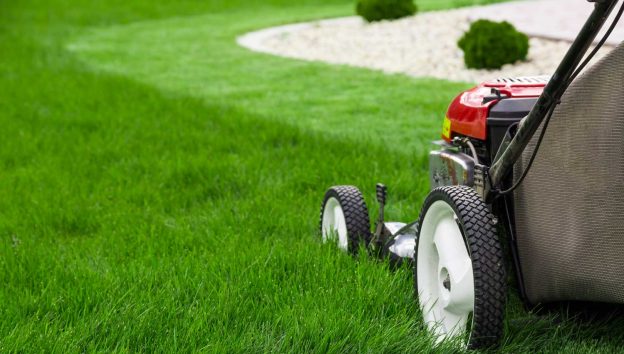How does yard work connect to the classroom ... and to assessment?
Quite simply, I need yard work to get me through the school year. Let me explain.
 I don't love yard work, yet I really need it. Yard work is good for my soul, like laughter, good conversation, and therapy. I imagine educators understand what I am talking about ... I need to work for an hour and see immediate progress. In addition to spending time alone with my thoughts and reflecting on the week as I weed a flower bed or mow the lawn, I can look back on my work and enjoy a sense of accomplishment.
I don't love yard work, yet I really need it. Yard work is good for my soul, like laughter, good conversation, and therapy. I imagine educators understand what I am talking about ... I need to work for an hour and see immediate progress. In addition to spending time alone with my thoughts and reflecting on the week as I weed a flower bed or mow the lawn, I can look back on my work and enjoy a sense of accomplishment.I bet most educators need something like yard work; for some teachers, "yard work" is painting or house projects or woodworking or model trains ... something that will provide that instant feedback and satisfaction about their work.
Educators often look negatively at students' need for instant gratification, but this is more of a human characteristic rather than a problem in students. We all need immediate feedback and a celebration of progress, so let's stop complaining about it and embrace it in the classroom.
Assessment is a powerful tool to provide feedback, check progress, and to give a sense of accomplishment for both teachers and students.
We often talk about assessment from the perspective of measuring learning, re-teaching, and guiding further instruction, but, unfortunately, it has degraded into a negative experience for the students. Currently, assessment (testing/grading) is absolutely NOT good for the soul ... in fact, it brings about stress and anxiety for students. But, can assessment ever be good for the soul ... like yard work?
Absolutely! It will take a paradigm shift in many classrooms and school systems, but assessment can be a celebration of learning and a genuine progress check. Instead of being a dreaded part of the school environment, it can be good for the soul for both teachers and students.
Here are a few powerful practices to consider:
1. Focus on the positive and celebrate learning. After teaching high school English for years, what a shift in my classroom culture when I started highlighting great sentences rather than circling (in red ink) mistakes.
2. Assess students more frequently. While this seems counter-intuitive, more assessments lower the stakes of each individual assessment and helps to create a daily classroom rhythm of checking on learning progress.
3. Allow for self-reflection / assessment. Reflection is an important socio-emotional skill, and providing a system/scaffold for students to learn this skill is a true gift.
4. Don't grade formative assessment (other than completion grades). It is amazing the negative impact that grades add to assessment, and the collective sigh of relief when students realize something is not graded (or not graded yet).
5. Provide Meaningful Feedback. Effective feedback takes a ton of teacher/classroom time, but research supports how important feedback is to true learning.
By shifting how we check progress and celebrate learning, assessment can truly become good for the soul!
No comments:
Post a Comment